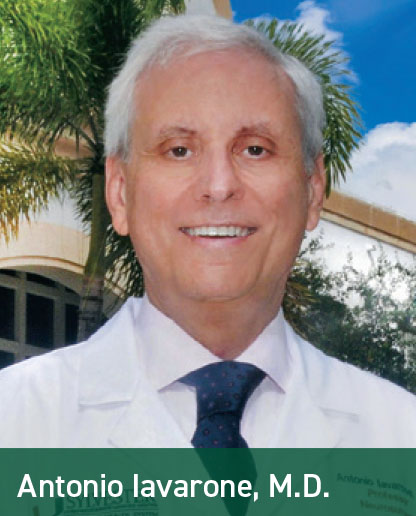In his new role, he aims to pave the way from research to clinical care.

Antonio Iavarone, M.D., has made a decades-long commitment to finding better treatments for glioblastoma and other aggressive brain tumors. As the new deputy director of Sylvester Comprehensive Cancer Center at the University of Miami Miller School of Medicine, he will have opportunities to do even more.
“We are incredibly pleased that Dr. Iavarone has joined our leadership team at Sylvester,” said Stephen D. Nimer, M.D., director of Sylvester, Oscar de la Renta Endowed Chair in Cancer Research, and executive dean for research at the Miller School. “He has been a leader in brain tumor research for more than 20 years and will bring many novel insights to our cancer center.”
A pediatric oncologist by training, Dr. Iavarone spent the last 20 years at Columbia University, where he was a professor of neurology and pathology and cell biology. There, he made several important breakthroughs, such as identifying a novel genetic abnormality, the FGFR3-TACC3 fusion gene, in patients with glioblastoma. As yet, his achievements have not translated into improved patient outcomes, but his work can change the way these tumors are treated.
Dr. Iavarone is both passionate about the scientific insights that come from research conducted by him and his colleagues and frustrated by the lack of meaningful clinical progress in the field. He believes that by harnessing Sylvester’s clinical and research acumen, he can help change the clinical trajectory for many brain tumor patients.
“I came to Sylvester because I want to give patients better tools to fight their disease,” he said. “While we may need to invent brand-new approaches, much can still be learned from work that is currently being conducted in research labs around the world. We must now translate those findings from the lab to the clinic.”
“Dr. Iavarone and his team are tackling these challenging cancers with molecular analyses that will help create tailored, personalized treatments,” said Henri R. Ford, M.D., M.H.A., dean and chief academic officer of the Miller School. “We see great potential to move the needle and improve patient outcomes.”